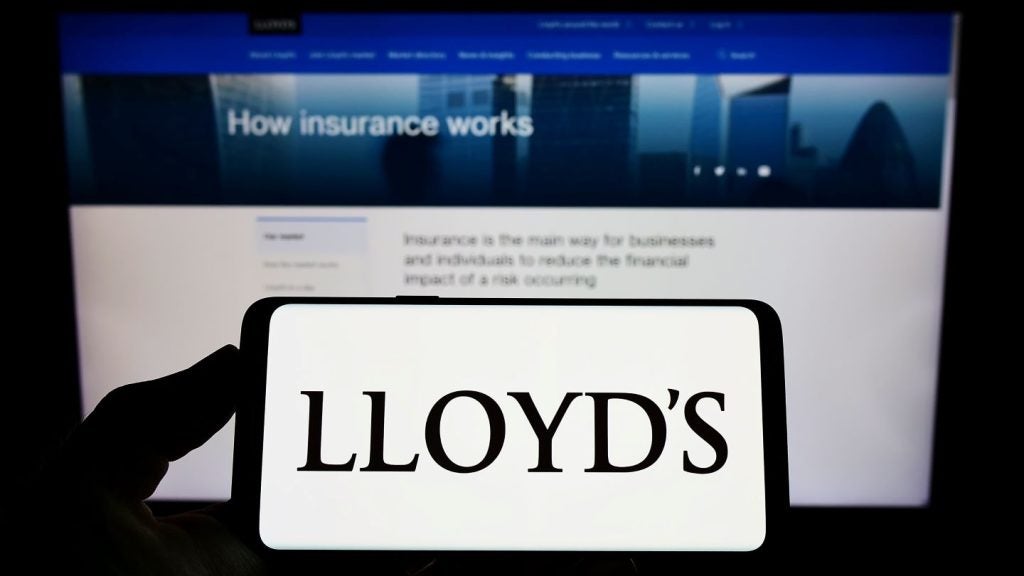Italian and Spanish insurers are most exposed
if Greece exits from the eurozone, through the contagion effect it
could have on Italian and Spanish sovereign and bank debt, says
Fitch Ratings.
Federico Faccio, senior director for insurance
at the rating agency, explains that Italian insurers have
considerably more exposure to their own sovereign debt than is the
case with Spanish insurers. However, Spanish insurers are more
exposed to the domestic banks, some of which may be reliant on the
sovereign debt for support.
Faccio says, “A Greek exit is not Fitch’s
base-case scenario; but if it were to happen, Italian and Spanish
insurance companies would most likely be placed on rating watch
negative or experience limited downgrades following a similar
action on the sovereign ratings – even if the exit were accompanied
by an effective EU policy response, and relatively orderly.”
He adds that there would be a heavier hit to
sovereign and insurance ratings in the event of a disorderly exit
with material contagion to peripheral countries.
Business dip
According to Faccio, new business for both
Italian and Spanish life insurers is tailing off because of banks’
efforts to attract more deposits to shore up their financing, and
reduced available income for households.
He says the reduction in business has had the
greatest impact on insurers that use a bancassurance model – in
which they partner with a bank to sell their products – but the
increasingly attractive deposit rates offered by the banks means
the effect has spread to most companies.
Focusing specifically on Italy, Moody’s
Investors Service says the outlook for the Italian life insurance
market remains negative as consumers’ reduced ability to save and
Italy’s weakened economy continue to hit sales.
Macroeconomically, the rating agency warns
that with around 40% of their assets invested in Italian sovereign
bonds – at about €200bn at the end of 2010 – Italian insurers have
significant sovereign concentration risk.
In Italy, as in many other European countries,
Moody’s expects that economic growth will remain sluggish. It says
the Italian economy entered recession in Q3 2011 and forecasts a
real GDP decline of up to 2% in 2012.
Consumer sentiment hit
Furthermore, the intensification of the
financial crisis at the end of last year and the effect of the
sizeable fiscal consolidation have heavily affected Italian
consumers’ sentiment since summer 2011, and life premiums already
contracted 18% in 2011, notes the Moody’s report Italian
Insurance: P&C is Stable But Life Market Remains Under
Pressure.
The result of all these factors is thatMoody’s
expects life insurers’ sales and profitabilityto remain constrained
between 2012and 2013.
Of the other major insurance markets, in
Faccio’s view, the UK and German life insurers are largely
sheltered from the sovereign debt crisis, at least in the event of
a relatively orderly Greek exit; while the French companies have a
more material, albeit manageable, exposure.
“Still, each country has at least one notable
exception,” he adds.
In the UK, Faccio says the notable exception
is Aviva, which he says has significant exposure to Italy via its
subsidiary.
He explains that in Germany, most life
insurance companies have only a domestic exposure as their modest
size precludes international operations.
“However, the larger companies do have such
exposure – the most significant of which is Allianz, which through
Allianz Italy is the second-largest life insurer in Italy, and
consequently holds a large portfolio of Italian sovereign debt,”
says Faccio.
Insurers’ views
From an insurers’ perspective, a
spokespersonfor Zurich Insurance Group says it doesnot have local
operations in Greece and hasa very limited direct exposure to the
country with only $1m invested in Greek government bonds.
The spokesperson says: “The uncertainty about
the future of Greece in the eurozone leads to high volatility in
the markets and we expect that equity markets continue to remain
volatile.
“A scenario in which Greece would exit the
European monetary union would create market challenges, but we are
confident to steer and continue our business without material
direct implications.
However, we remain confident that all involved
parties will find a comprehensive solution to resolve the current
situation and to calm markets.”
A spokesman for Allianz says its base scanario
is that Greece will remain in the Eurozone. “We consider that to be
the best solution for all parties involved,” he says.
Following the recent Greek election, the
spokesman says the results encourage hopes for a stable government
that will continue on the path of reform.
However, given the deep recession and
resulting budget shortfalls, he says future developments remain
uncertain.
The fact that the radical left coalition
Syriza could get 27% of votes and form the second-largest faction
in parliament shows that Greek voters still remain split, says the
Allianz spokesman.
“What is most important is that structural
reforms in Greece are implemented quickly in order to encourage
more growth in the mid term.
For the short term, Greece needs to be
given a hand with a growth initiative, a kind of Marshall Plan,”
says the Allianz spokesman.
He adds that if Greece were to cancel the
Troika Memorandum and stop payments to its creditors, there would
be no more financial aid from Europe.
As a result, the ECB would probably cease
funding Greek banks, the country would soon be bankrupt and the
result would be a Greek exit from the euro.
While an exit would be technically manageable,
the spokesman says immediate capital controls would have to be
implemented in Greece and liquidity injections into the Greek
banking system by the ECB would end.
Disastrous consequences
He also notes that aid for non-Greek European
banks affected by the exit would be provided by the stability
mechanisms the European Financial Stability Facility and the
European Stability Mechanism and it would entail disastrous
economic consequences for Greece.
Daniel von Borries, a member of Ergo Life
Insurance’s board of management, says if Greece were to leave the
eurozone, there would not be any direct effects for Ergo.
“We do not hold Greek government bonds in our
investment portfolio anymore, and we do not expect any appreciable
impact on our insurance business in the event of a Greek exit
either,” he says. He adds that to realise the European idea, all
the countries involved must make a contribution.
“Firstly, however, there remains a great deal
to do politically; for too long, political integration has lagged
too far behind economic dynamics in Europe.
“Secondly, some countries are currently
experiencing a crisis of trust that can only be resolved through a
fundamental change in their budgetary policy. But the currency
union, and thus Europe, continues to be worth the effort.”
In conclusion, a report written by Shamik
Dhar, who heads Aviva Investors’ multi asset solutions investment
strategy team, and Stewart Robertson, a senior economist for the UK
and Europe at Aviva Investors, notes
that as post-Lehman events showed, contagion
spreads rapidly and is indiscriminate.
“Even solvent institutions and countries can
lose access to funding or be targeted by panicking investors,” say
Dhar and Robertson.
Greek debt breakdown
Greek public debt amounts to €318bn,
($393.6bn) of which €178bn is held abroad, according to a report by
Shamik Dhar, who heads Aviva Investors’ multiasset solutions
investment strategy team, and Stewart Robertson, a senior economist
for the UK and Europe at Aviva Investors.
Much of the remaining €140bn is posted as
collateral for loans from the European Central Bank (ECB), says
Aviva Investors.
The report says: “European institutions are on
the hook for the bulk of Greek government debt.
“If Greece exits and defaults, then that is
the maximum possible loss for those institutions.
“But private debts would be written down too,
and these could amount to another €200bn.
“The figures for Greece are big enough, but
they pale into insignificance compared to the numbers for Spain and
Italy.”







